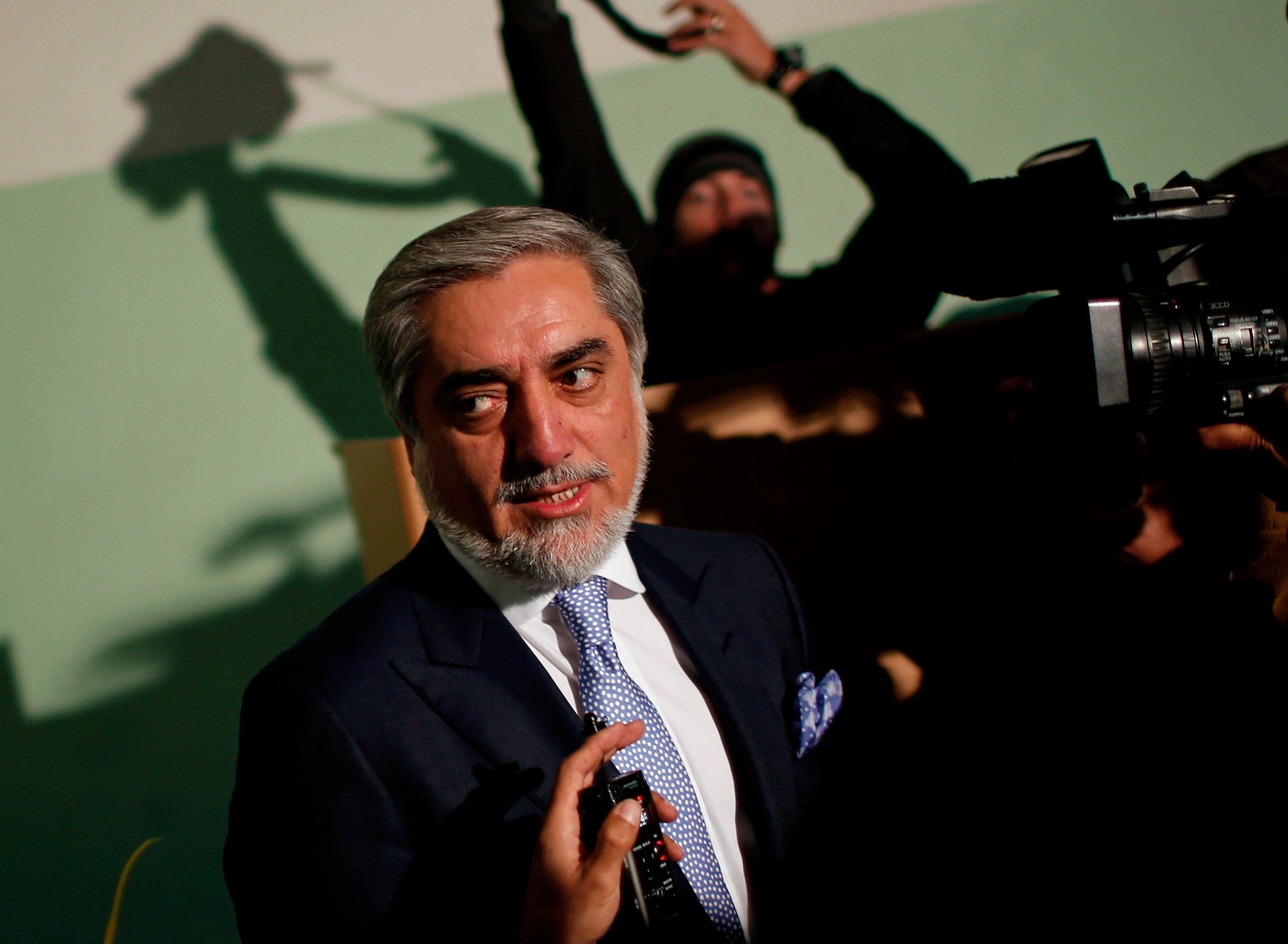
Early Results Point To a Runoff Vote in Afghan Elections
Afghanistan took another step toward a new government on April 13, with partial results from the previous weekend’s presidential vote setting the stage for what is likely to be a runoff between a former Foreign Minister and an ex–Finance Minister.
The winner will replace Hamid Karzai, Afghanistan’s President since the U.S.-led invasion in 2001, who is constitutionally barred from seeking a third term in office. The contest comes at a critical time for the war-torn country, with the majority of the approximately 51,000 international troops stationed there set to depart at the end of the year.
The early results showed former Foreign Minister Abdullah Abdullah and former Finance Minister Ashraf Ghani leading a pack of eight candidates with 41.9% and 37.6% of the vote, respectively. Zalmai Rassoul, another ex–Foreign Minister seen as a favorite of President Karzai’s, trailed with 9.8%.
But with the figures reflecting the results at only 10% of polling stations in 26 of the country’s 34 provinces, the field could still shift. Final results are due May 14. “I want to make clear that the results could change in future, as we announce the results with additional percentages of the vote,” Ahmad Yousuf Nuristani, the head of the country’s Independent Election Commission, told Reuters. No candidate, however, is expected to emerge with an outright majority, and a runoff election between the top two candidates seems likely.
The outcome isn’t simply dependent on the outstanding ballots–fraud too could have an impact.
Early reports indicate that there may have been significant irregularities in the vote, though it is unclear how they might measure up against those in the 2009 presidential election, in which over a million ballots were disqualified. While some 7 million Afghans braved threats of violence from Taliban militants to vote in this year’s elections–an encouraging first step in what many hope will be a peaceful transfer of power–any evidence of widespread fraud could undermine Karzai’s successor.
DATA
POLICING FACEBOOK
Facebook restricted user content 7,371 times from July to December 2013, owing to alleged legal violations around the world. Below, some country-by-country tallies:
4,765
India
2,014
Turkey
162
Pakistan
113
Israel
Three Essential Facts About The U.S.-Iran Spat
The U.S. has refused to issue a visa to Iran’s choice for U.N. ambassador, Hamid Aboutalebi, because of his links to the group behind the 1979 hostage crisis at the U.S. embassy in Tehran. The visa ban blocks him from taking up his position and has sparked a diplomatic row.
THE BACKGROUND
Aboutalebi says his involvement in the 1979 crisis was limited to translating for the group that seized the embassy. Following the Iranian revolution, he became a diplomat and has served as Iran’s envoy to Italy, Belgium, Australia and the E.U.
THE LAW
The U.S., as the nation that hosts the U.N. headquarters, is obliged to grant visas for U.N. envoys–but it can bar individuals on national-security grounds.
THE FALLOUT
The spat comes against the backdrop of delicate negotiations over Iran’s nuclear program, raising concerns about the future of the talks.
Brief History
Panda Diplomacy
China postponed plans to send two pandas to Malaysia in the wake of tensions over the disappearance of Malaysia Airlines Flight 370. It’s not the first time China has used pandas as a diplomatic tool.
1957
The country presented the Soviet Union with Ping-Ping, the first panda sent abroad as a state gift in modern times. A second Chinese panda, An-An, joined Ping-Ping at the Moscow Zoo two years later.
1965
North Korea’s founder, Kim Il Sung, received five pandas from his communist ally from 1965 to 1980.
1972
After Richard Nixon became the first U.S. President to make an official visit to China, Beijing dispatched two pandas–Ling-Ling and Hsing-Hsing–to the National Zoo in Washington.
1973
China gave two pandas to France after President Georges Pompidou visited Beijing: Li-Li died within a year, but Yan-Yan lived until 2000.
2008
Taiwan’s President Ma Ying-jeou accepted two pandas as relations with Beijing warmed. His anti-China predecessor had turned down a similar offer in 2006.
Tragedy at Sea
SOUTH KOREA
Coast-guard crews search for survivors after a South Korean ferry capsized off the country’s southern coast on April 16. More than 280 people, many of them students on a high school trip, were reported missing after the ferry carrying 462 people overturned in apparently calm conditions on its way to the tourist island of Jeju. Dozens of coast-guard and navy vessels and 18 helicopters joined the rescue operation.
WORLD
437,000
Number of murders worldwide in 2012, according to a new report from the U.N. Office on Drugs and Crime, which said only about 43% of intentional homicides result in convictions
SYRIA
‘This is a turning point in the crisis.’
BASHAR ASSAD, President of Syria, speaking at Damascus University on April 13. With his forces making gains against rebels, Assad struck a confident tone, lauding the army’s role in what he called the “war against terror.”
Trending In
+
RELIEF
The U.N. approved the creation of a nearly 12,000-strong peacekeeping force for the conflict-stricken Central African Republic
FOOD
An Australian chef won the award for the best margherita pizza at the World Pizza Championship in Parma, Italy
ERRORS
A German furniture store pulled thousands of Chinese-made cups from sale when some were found to bear a faint image of Hitler
TERRORISM
A bomb at a bus station in Nigeria’s capital, Abuja, killed at least 72 people and underscored fears of a spreading Islamist insurgency
–
More Must-Reads from TIME
- Cybersecurity Experts Are Sounding the Alarm on DOGE
- Meet the 2025 Women of the Year
- The Harsh Truth About Disability Inclusion
- Why Do More Young Adults Have Cancer?
- Colman Domingo Leads With Radical Love
- How to Get Better at Doing Things Alone
- Michelle Zauner Stares Down the Darkness
Contact us at letters@time.com